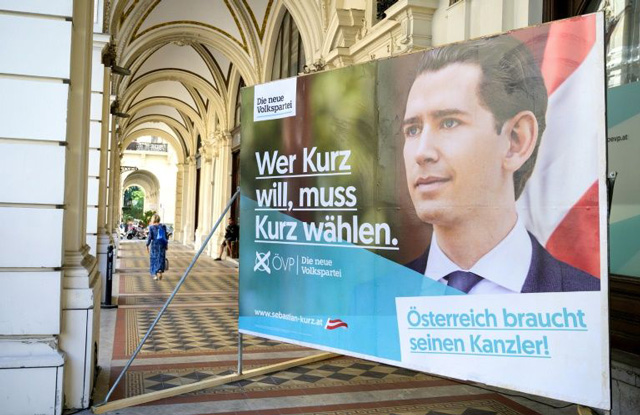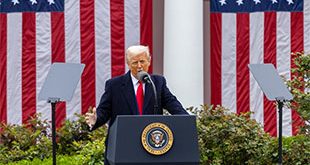
Vienna, Austria | AFP | Austrians began voting Sunday in snap elections, in which the conservatives look set to triumph but face difficulties finding a partner to govern after a corruption scandal brought down their last coalition with the far-right.
The People’s Party (OeVP) led by 33-year-old Sebastian Kurz is predicted to win around 33 percent, up slightly from the last elections two years ago but not enough to form a majority government.
Kurz has “nothing to win, but a lot to lose”, Die Presse daily warned in an editorial on Saturday.
“Even with a nice plus on Sunday, it is more difficult for him than in 2017,” it said, adding there was no partner that quite suited any more.
With 6.4 million people eligible to vote, polling stations across the country opened at seven am (0500 GMT). They will close by five pm (1500 GMT) when first projections are expected.
– Far-right troubles –
The parliamentary elections were brought about by the “Ibiza-gate” corruption scandal that engulfed Kurz’s far-right coalition partner in May, after just 18 months in government together.
Experts have predicted “whizz-kid” Kurz could once again partner up with the Freedom Party (FPOe) in a re-run of the coalition that has been touted by Hungarian Prime Minister Viktor Orban and other nationalists as a model for all of Europe.
But fresh allegations of wrong-doing have shaken the far-right over the past week.
Prosecutors confirmed Thursday they were investigating Heinz-Christian Strache, who resigned as FPOe leader and vice-chancellor in May because of “Ibiza-gate”, over fraudulent party expense claims.
The FPOe’s current leader, Norbert Hofer, has said he won’t tread “gently” if any wrong-doing is confirmed, leading to worries that supporters of Strache, who led the party for 14 years and remains influential, could stay away from the polls in protest.
Kurz himself has also warned that left-leaning parties could gain more than predicted and then band together to form a coalition without him.
“If there is just a little shift… then there will be a majority against us,” Kurz told supporters at a final rally in Vienna on Saturday.
– Climate matters –
Unlike in 2017, the top voter concern is not immigration — a welcome topic for Kurz and his former far-right allies — but the climate.
ens of thousands of people marched Friday in Vienna and other Austrian cities to demand the government fight climate change.
The protests were part of global demonstrations led by Swedish activist Greta Thunberg and the biggest yet in the Alpine country of 8.8 million inhabitants.
Against this backdrop, Austria’s Greens — who failed to get into parliament in 2017 in shock results — look set to make the biggest inroads on Sunday.
They are tipped to garner 13 percent, up 10 percentage points from two years ago.
It remains to be seen if Kurz, a former law student who has enjoyed a rapid ascent through the ranks in Austrian politics, tries to woo them and another small party, the liberal NEOs, to form a partnership.
Unsurprisingly given the reason the election was called, corruption in public life and party financing have also been prominent themes in the campaign, as well as more bread-and-butter issues like social care.
Another option for Kurz could be to form a coalition with the Social Democrats (SPOe).
With a predicted historic low of around 22 percent, the SPOe was neck and neck with the FPOe before the troubles this week as the country’s second strongest party.
Since World War II, either OeVP or SPOe have always governed, and for 44 years in total the two ruled together, but it was Kurz who ended their last partnership, leading to the 2017 polls.
He has also floated the idea of ruling in a minority government. But this would potentially continue political uncertainty and could even trigger another election.
Either way, negotiations between parties are expected to take months again. Ultimately, President Alexander Van der Bellen, a former Greens leader, will need to approve any government.
The OeVP-FPOe government imploded in May when two German media outlets published footage filmed secretly on the Spanish resort island of Ibiza, showing Strache appearing to offer public contracts in exchange for campaign help from a fake Russian backer.
 The Independent Uganda: You get the Truth we Pay the Price
The Independent Uganda: You get the Truth we Pay the Price



